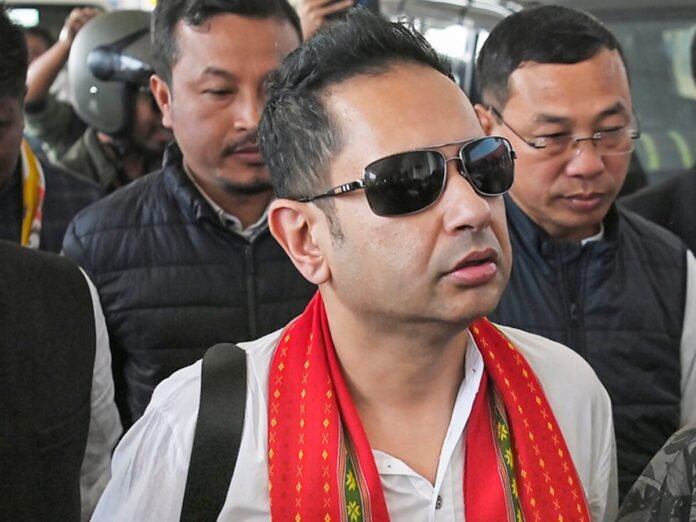Pradyot Debbarma has called for direct funding from the Centre for the Tripura Tribal Areas Autonomous District Council (TTAADC) during a crucial meeting with the Finance Commission. As the chief of the Tipra Motha Party, which now shares an alliance with the BJP in Tripura, he strongly advocated for financial autonomy for the tribal council. He emphasized that bypassing the state government in fund allocations would ensure faster development and greater self-governance for the tribal communities.
The demand for direct funding has been a long-standing issue for the TTAADC, which governs over two-thirds of Tripura’s land and represents the indigenous population. Pradyot Debbarma highlighted that the existing financial structure often leads to delays and bureaucratic hurdles, preventing timely execution of development projects. He stressed that direct allocation from the Centre would allow the district council to address critical issues such as infrastructure, healthcare, and education without unnecessary interference.
The meeting with the Finance Commission came at a crucial time when regional autonomy remains a key political discussion in Tripura. Pradyot Debbarma reiterated that the tribal council requires a more independent financial mechanism to meet the needs of its people. He argued that tribal communities continue to struggle due to inadequate funding and that direct financial support would help bridge gaps in development. The proposal aims to strengthen the administrative efficiency of the council while ensuring that funds are utilized transparently for the benefit of the indigenous population.
The push for financial independence aligns with Pradyot Debbarma’s long-term vision for Tipraland, a separate state for Tripura’s indigenous tribes. While the alliance with the BJP has opened new political avenues, he remains vocal about the need for greater self-governance. The demand for direct funding signals a move toward empowering the tribal administration, reducing dependence on state authorities, and enabling the council to function with more autonomy.
Tripura’s tribal areas have long faced developmental challenges, with infrastructure projects often progressing at a sluggish pace due to funding bottlenecks. Pradyot Debbarma emphasized that a streamlined financial system would help accelerate economic growth and improve living conditions for tribal communities. He pointed out that direct financial transfers to the council would create opportunities for job creation, better healthcare facilities, and quality education for indigenous populations.
The demand for direct funding also raises questions about the future dynamics between the Tipra Motha Party, the BJP-led state government, and the Centre. While the BJP’s central leadership has expressed interest in tribal welfare, Pradyot Debbarma’s call for bypassing the state government in financial matters may lead to political friction. However, he maintained that his primary focus remains on the welfare of the tribal population rather than political maneuvering.
The Finance Commission’s response to this demand will play a significant role in shaping the financial landscape of the TTAADC. If accepted, direct funding could set a precedent for other tribal councils across India, strengthening regional governance and ensuring that local bodies receive the necessary financial resources without delays. Pradyot Debbarma urged the commission to acknowledge the unique administrative needs of the tribal council and consider policy reforms that grant greater fiscal autonomy to autonomous district councils.
The demand for direct financial allocation has also sparked discussions among political analysts, with many viewing it as a strategic move by the Tipra Motha Party to assert its influence. While the alliance with the BJP has provided a platform for negotiations, Pradyot Debbarma continues to push for measures that benefit Tripura’s indigenous communities. His insistence on direct funding underscores his commitment to tribal welfare and his determination to secure long-term financial stability for the TTAADC.
With political equations constantly evolving in Tripura, the Finance Commission’s decision on this matter will be closely watched. If the demand is met, it could mark a significant shift in the financial governance of autonomous councils in the region. Pradyot Debbarma’s efforts reflect a broader push for self-determination among tribal communities, reinforcing the need for policies that prioritize indigenous voices and their aspirations for development.


